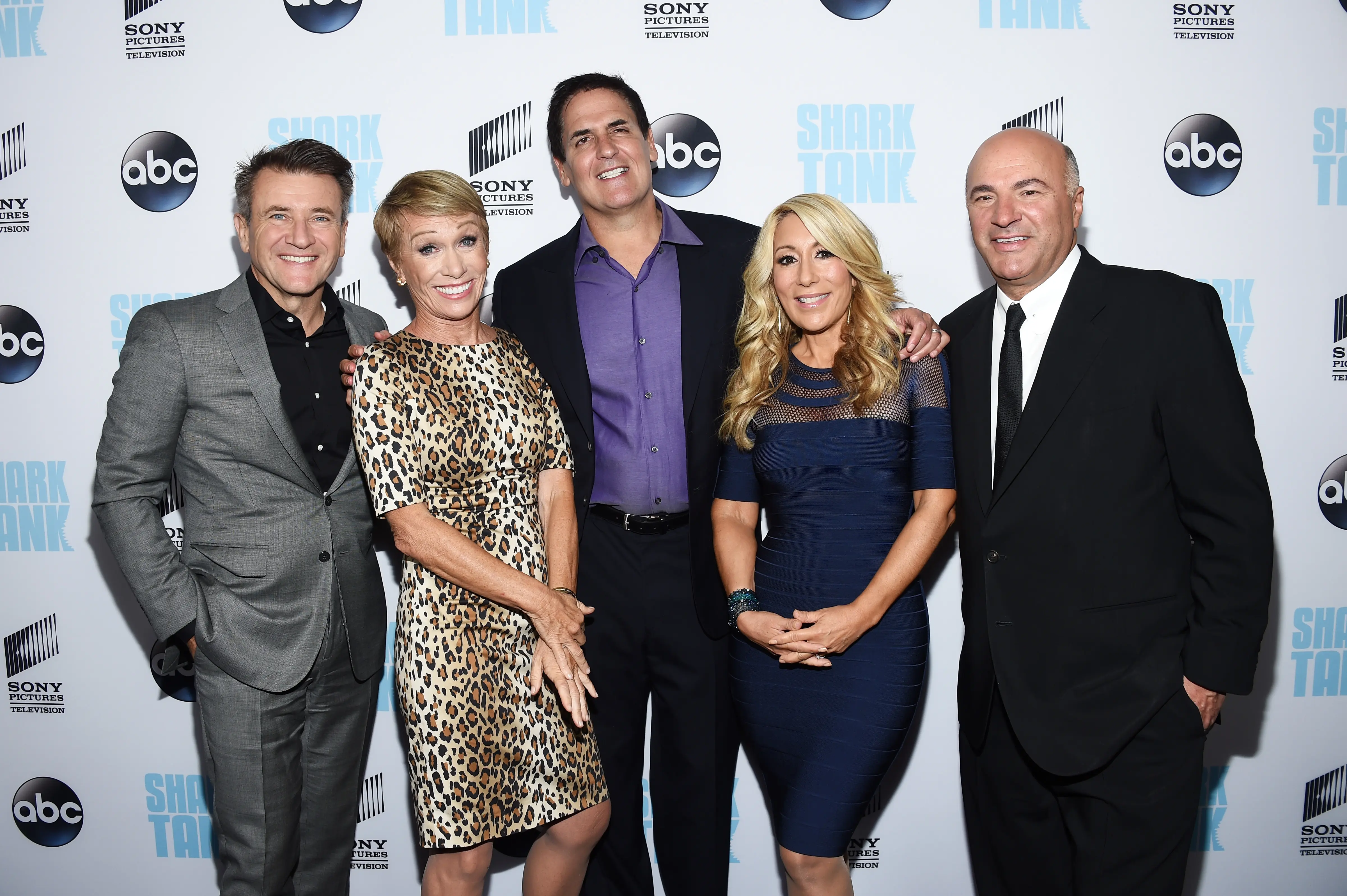Shark Tank update: What happened to Rekkie after appearing on the show?
-
 Robert Herjavec, Barbara Corcoran, Mark Cuban, Lori Greiner and Kevin O'Leary (Image via Getty)
Robert Herjavec, Barbara Corcoran, Mark Cuban, Lori Greiner and Kevin O'Leary (Image via Getty)Rekkie, the smart ski goggles pitched by brothers Henry, David, and Fletcher Pease on Shark Tank Season 15 episode 7, secured a deal with Mark Cuban for $300,000 in exchange for 12.5% equity.
The business that makes smart goggles to display your speed, messages, tunes, or where your buddies are skiing, continues in 2025, with new models now available.
Post-show sales surged, and while the Cuban deal did not close by mid-2024, Rekkie expanded internationally and launched the Spekter 2.0 model in January 2025, maintaining direct-to-consumer sales through its website.
Rekkie's journey on Shark Tank
The Pease brothers entered the Shark Tank seeking $300,000 for 10% equity, valuing Rekkie at $3 million.
They demonstrated how the goggles pair with an app for real-time location sharing via GPS or long-range radio in poor cell areas, addressing the challenge of groups separating on mountains.
By launch in late 2022, Rekkie had generated $175,000 in sales, with units costing $130 to produce and retailing at $349, alongside plans to reduce costs to $100 at scale.
Sharks tested the goggles during the pitch.
Lori Greiner passed, stating her disinterest in winter sports despite praising the product.
Kevin O’Leary offered $300,000 for 20% equity plus $0.20 distributions per dollar of income taken.
Barbara Corcoran exited after noting a missing feature for specific run or lift identification.
Mark Cuban offered $300,000 for 15% equity; the brothers countered at 12.5%, highlighting expansions into military and law enforcement tech, which Cuban accepted.
Henry, with a Princeton engineering degree and Silicon Valley experience, led hardware development.
David handled manufacturing, marketing, and operations, while Fletcher managed sales, finance, and accounting.
The trio invested $200,000 personally and secured a $40,000 grant.
Their patent for the display technology remains pending, with no direct competitors in action sports goggles at the time.
Rekkie's post-Shark Tank trajectory
After the show aired, Rekkie saw more visitors online, higher sales, and a jump in social media activity.
Around halfway through 2025, their Instagram hit above 6,200 followers. Early that year, they dropped the new Spekter 2.0 goggles - these had a sharper, brighter screen, better lens clarity, along with longer reach between devices.
They are approved for sale across the U.S., Europe, and Canada; the standard price is $349 instead of $399, while package deals begin at $399, which includes spare lenses.
Rekkie maintains an active online store offering smart snow goggles, various lenses, hoodies, t-shirts, long-sleeve shirts, sweatshirts, and goggle packs.
Seasonal promotions, such as a $50 summer discount, supported ongoing sales.
The brothers projected potential for military applications, aligning with their pitch ambitions.
Estimates place Rekkie's 2025 net worth at $3.2 million, assuming 10% annual growth from the $2.4 million post-deal valuation.
Customer acquisition costs hovered at $120 per order, with average orders at $475.
Positive reviews flooded social media post-airing, emphasising the goggles' utility for staying connected without removing gloves.
Forums like Reddit discussed the product's GPS accuracy in mountains, with users noting its value despite data-heavy features.
The Pease brothers balanced Rekkie with other ventures projected at $8-10 million annually.
Availability persists online, with no retail partnerships detailed beyond direct sales.
Shark Tank exposure propelled Rekkie from one ski season's sales to international reach.
The goggles' anti-fog and contrast-boosting lenses position them as premium even sans smart features. Updates confirm ongoing innovation, with future military pivots hinted at.
Stay tuned for more updates.
TOPICS: Shark Tank, Shark Tank Rekkie
- Shark Tank update: What happened to Flipstik after appearing on the show?
- Shark Tank Update: What happened to Lynnae’s Gourmet Pickles after appearing on the show
- Celebrity Wheel of Fortune is ABC's quiet Friday success as The Golden Bachelor loses its shine
- Shark Tank update: What happened to Deviled Egg Co. after its appearance on season 16?